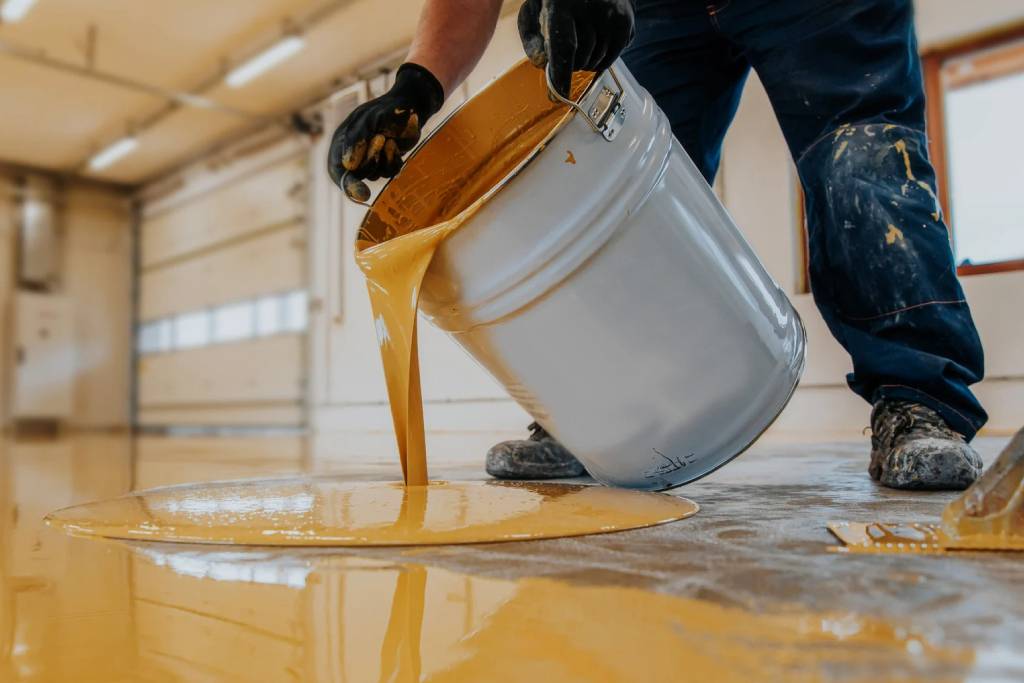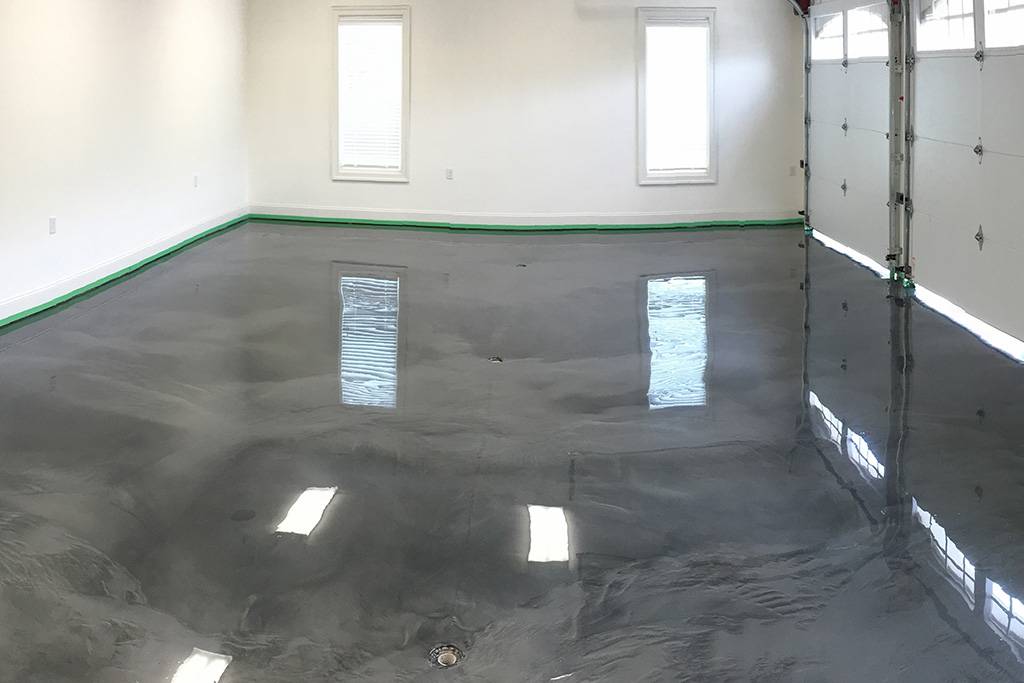Epoxy flooring is gaining popularity amongst kitchen floor options due to its durability, hygiene, and anti-slip properties. Coating the surface with liquid epoxy creates a seamless and resistant epoxy system, perfect for the daily perils of a commercial kitchen.
Epoxy flooring installation is swift and cost-effective, making it an appealing option for transforming kitchens without overspending. Once applied, epoxy floors need minimal maintenance, ensuring a long-lasting and beautiful floor. With a wide range of colors and patterns, customization possibilities for kitchen flooring are endless, creating unique and eye-catching spaces tailored to personal preferences.
Key Takeaways
- Epoxy floor coatings offer durability, hygiene, and anti-slip properties for homeowners.
- The installation process is efficient and cost-effective, making it an appealing choice for kitchen renovations.
- Epoxy flooring provides a wide range of colors and patterns, offering endless customization possibilities.
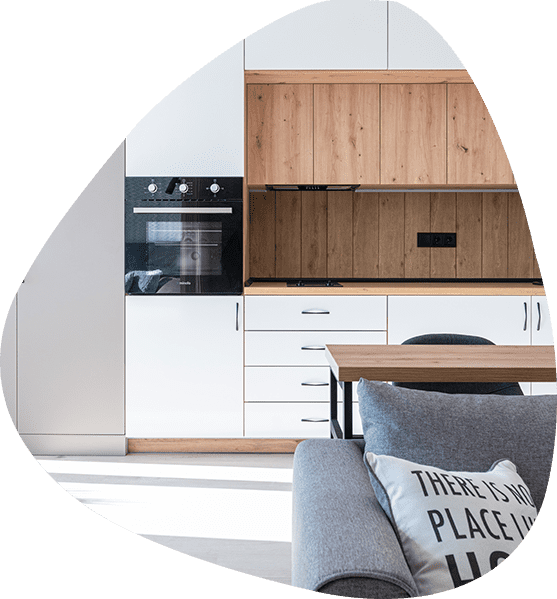
Understanding the fundamentals of a Commercial Kitchen Floor
Why Epoxy Floors?
An epoxy system are a resilient and chemically resistant flooring solution composed of resins and hardeners. Originally popular in commercial and industrial settings, epoxy flooring is now increasingly used in residential spaces, especially kitchens. With various design flooring options and floor coating colors available, homeowners can easily customize their kitchen floors, creating a seamless and visually appealing appearance over existing concrete or other substrates.
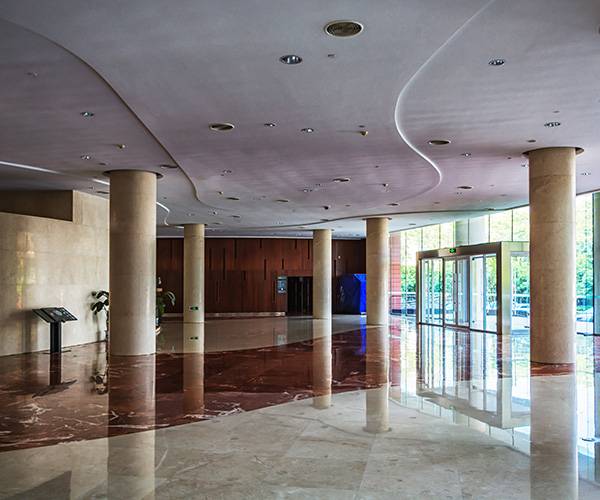
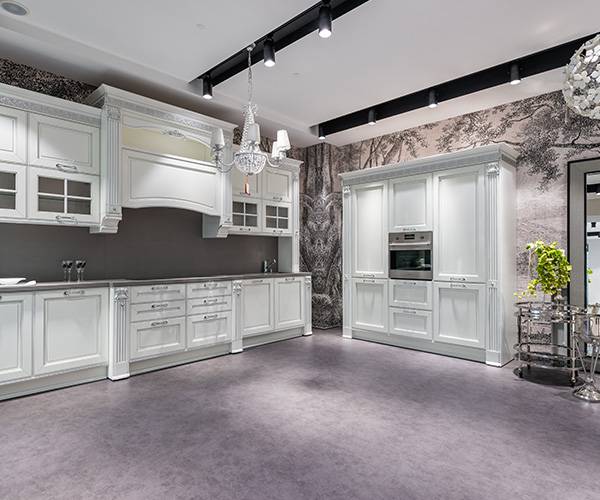
The best options for restaurant kitchen flooring
Epoxy floors are an excellent choice for restaurant kitchens due to their durability, ease of maintenance, safety, chemical resistant properties, heat resistant properties, scratch resistant properties, anti microbial properties, odor free, customizability, and sustainability. They can withstand wear and tear, are non-porous for easy cleaning, offer slip and chemical resistance, and come in various colors and patterns. Additionally, epoxy floor coatings can be installed over existing surfaces, reducing waste and saving resources.
Benefits of Epoxy Floor Coating in Commercial Kitchens

Durability
Epoxy flooring can withstand heavy foot traffic and spills, making them ideal for heavy traffic areas.

Ease of Maintenance
Non-porous and easy to clean, sweeping or mopping regularly keeps the floor looking fresh.

Aesthetic Appeal
Customizable colors and patterns add an attractive shine with a high-gloss finish.

Safety Features
Slip-resistant and resistant to bacteria and mold, enhancing kitchen safety and cleanliness.

Cost-Effectiveness
Affordable materials and installation costs, plus long-lasting durability, offer a cost-effective flooring solution.
Choosing the Right Epoxy Flooring for Your Kitchen
Types of Epoxy Coatings
- Water-based epoxy: Easier application, ideal for light residential use.
- Solvent-based epoxy: More durable but has higher VOC levels.
- 100% solid epoxy: Most durable and resistant, commonly used in high-traffic commercial spaces.
Color and Design Flooring Options
- Solid colors: Choose from various shades to match your kitchen aesthetic.
- Flakes or chips: Add visually appealing and slip-resistance.
- Metallic epoxy: Achieve a unique, elegant look with a glossy, reflective surface.
Professional vs. DIY Installation
- DIY: Cost-effective but requires time, effort, and skill.
- Professional: Offers high-quality results, durability, warranties, and aftercare support.
Installation Process for Commercial Kitchen Flooring
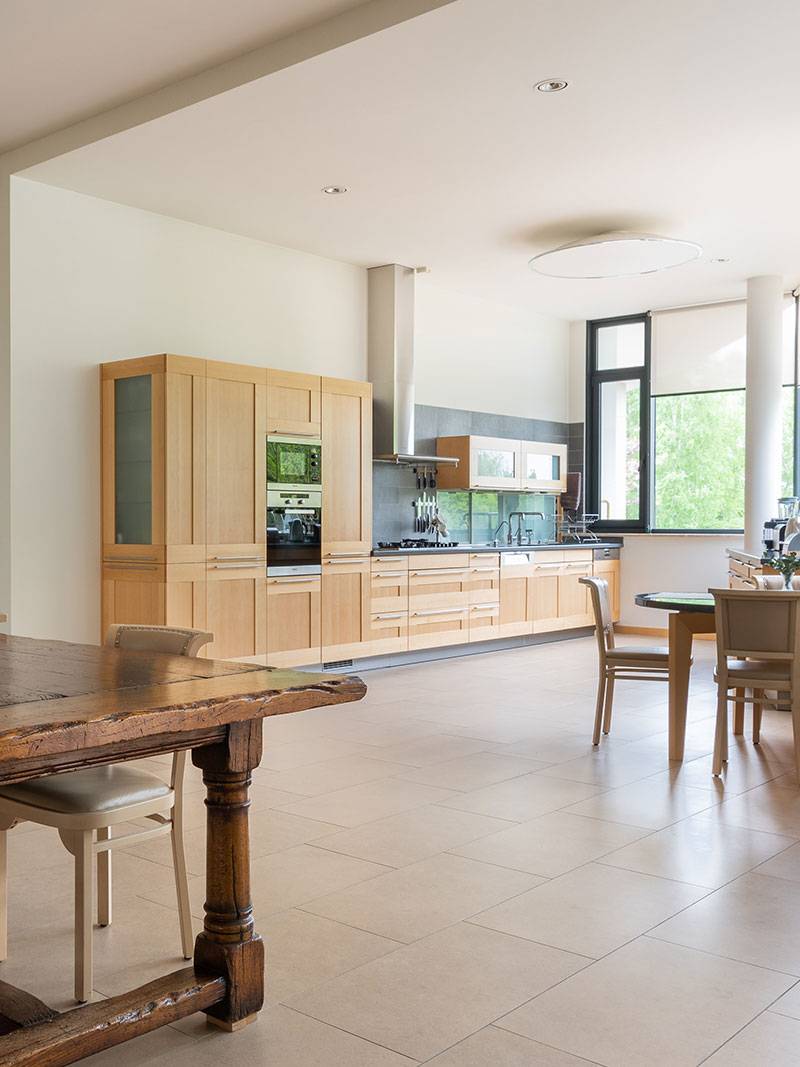
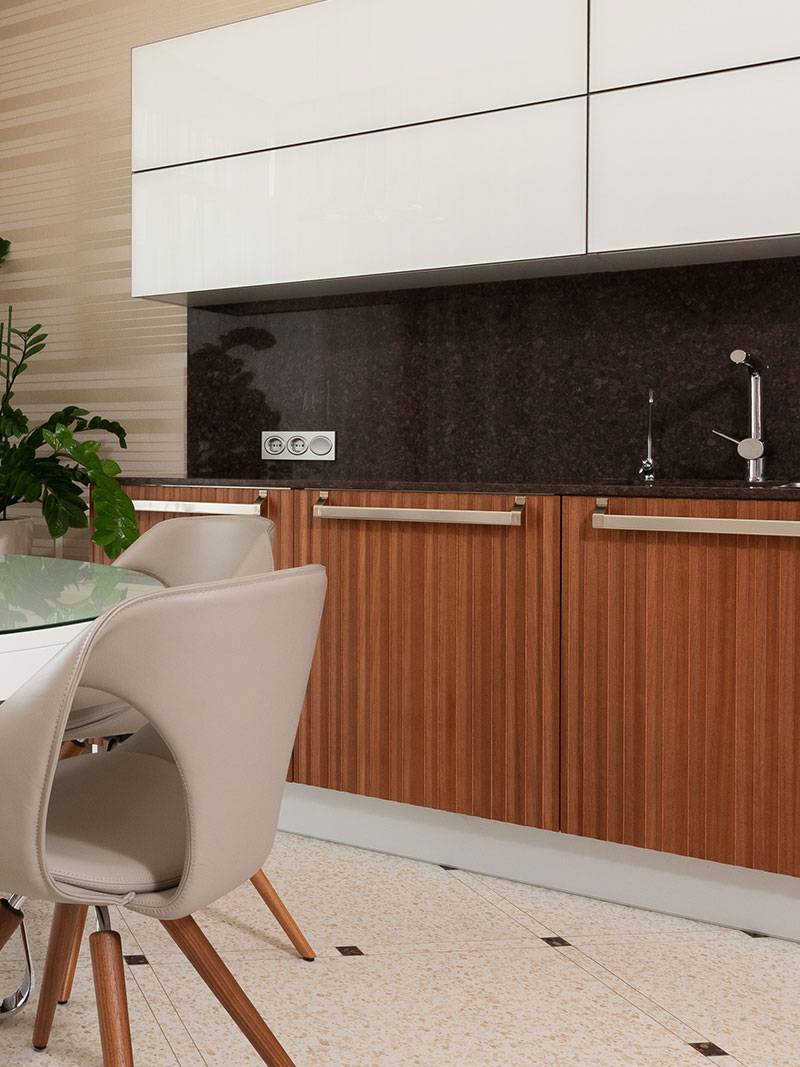
Maintenance and Cleaning Tips for Commercial Kitchen Floors

Routine Cleaning
- Regularly sweep or vacuum to remove dust and debris.
- Use a mild detergent with warm water and a soft cloth or mop for thorough cleaning.
- Rinse with clean water and dry with a microfiber towel to prevent water spots.

Dealing with Stains and Spills
- Wipe up spills promptly to prevent damage.
- Water-based spills: Use a dry cloth or paper towel.
- Oily spills: Clean with warm water and mild detergent, then rinse with clean water.
- Acidic spills: Neutralize with a baking soda-water mixture, then clean and rinse.

Preventing Scratches and Damage
- Use felt pads or soft rubber casters on furniture to prevent scratches.
- Place door mats at entrances to keep dirt from the floor.
- Avoid dragging heavy objects; use a soft blanket or towel if necessary.
- Keep floors dry and clean to prevent slip hazards and potential damage.
Get a Free Estimate for your Commercial Kitchen Flooring
FAQ: Commercial Kitchen Floors
What are the pros and cons of epoxy floors in a commercial kitchen floor?
Pros include stain, chemical, and abrasion resistance, easy cleaning, thermal shock resistance and a seamless surface. However, they can be slippery when wet, may release strong odors during installation, and can be susceptible to scratches, fading, or yellowing over time.
How do epoxy floors compare to concrete or tiles?
Epoxy floors offer seamless, water-resistant surfaces with easy maintenance, while tiles provide a classic aesthetic but require more upkeep due to grout lines and can be prone to cracking and chipping.
What’s the cost of commercial kitchen epoxy flooring?
Costs vary based on size, epoxy type, and labor. Basic coating: $3 to $7 per sq. ft. Premium, decorative epoxy: $8 to $12 per sq. ft. Additives to improve chemical resistant properties may cost additional. The overall low maintenance helps in keeping the final product costs low.
What is the average downtime one can expect for a commercial kitchen to install epoxy flooring?
2-3 weeks subject to the size of the kitchen floors.
Is there a recommended floor paint for commercial kitchen flooring?
Yes, specially formulated epoxy floor paints are ideal for commercial kitchens, offering durability, chemical resistance, and slip-resistant texture. It has anti microbial properties making them ideal for a space which has frequent spills of food, oil, etc. Check out USDA approved epoxy floor coating options to learn more.
Where can I find epoxy flooring specialists near me?
You can ask for recommendations, check local business directories, or search online listings for epoxy flooring specialists with positive reviews and experience in kitchen flooring.
Are epoxy floors in kitchens slip-resistant?
Epoxy floors can be made slip-resistant by adding aggregates or textures during installation, providing an extra level of safety in kitchen environments.
How frequently do we need to get additional floor coatings?
Subject to wear and tear, every 2-3 years.
Can I easily maintain a clean area by removing food spills, grime and chemicals from the floor?
Yes, just use a damp cloth and a pH neutral cleaner. It will keep your floor bacteria free and long lasting.
Can I use same epoxy design on the walls and the floor?
Technically yes, but it is not advised. Walls need to be coated/covered with a wall specific paint which does not need to have such properties like an epoxy coating does.

